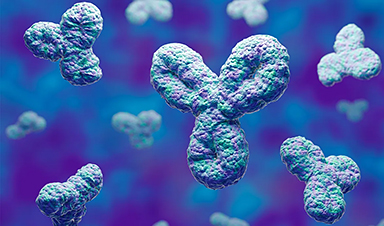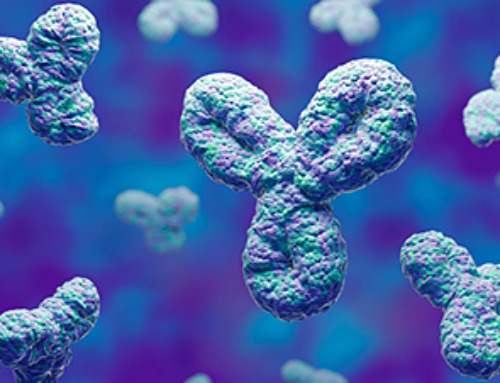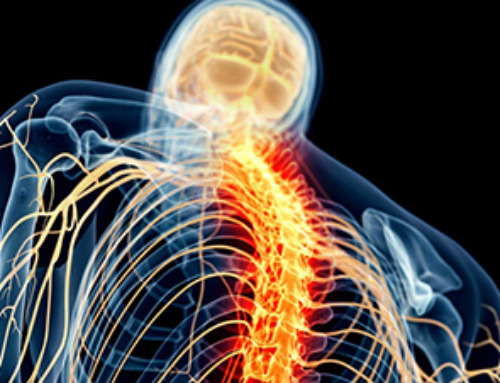Research indicates that COVID-19 survivors face doubled risks of severe cardiac events for years after recovery, especially if hospitalized.
People with A, B, or AB blood types are particularly vulnerable, highlighting the need for personalized approaches to heart health post-COVID.
COVID-19 and Cardiovascular Risk
A history of COVID-19 can double the risk of heart attack, stroke, or death, according to new research led by Cleveland Clinic and the University of Southern California.
The study revealed that individuals with any type of COVID-19 infection were twice as likely to experience a major cardiac event, such as a heart attack, stroke, or death, for up to three years following their diagnosis. This risk escalated significantly for patients who were hospitalized for COVID-19, surpassing even the influence of a previous history of heart disease.
Genetic Factors and COVID-19 Complications
Further genetic analysis indicated that individuals with non-O blood types (such as A, B, or AB) were twice as likely to suffer a severe cardiovascular event after COVID-19 compared to those with type O blood.
Published on October 9 in the journal Arteriosclerosis, Thrombosis, and Vascular Biology, the researchers used UK Biobank data from 10,005 people who had COVID-19 and 217,730 people who did not get infected between February to December 2020.
Global Implications of Cardiac Risks Post-COVID
“Worldwide over a billion people have already experienced COVID-19. The findings reported are not a small effect in a small subgroup,” said co-senior study author Stanley Hazen, M.D., Ph.D., chair of Cardiovascular and Metabolic Sciences in Cleveland Clinic’s Lerner Research Institute and co-section head of Preventive Cardiology. “The results included nearly a quarter million people and point to a finding of global healthcare importance that promises to translate into a rise in cardiovascular disease globally.”
Certain genetic variants are already linked to coronary artery disease, heart attack and COVID-19 infection. The researchers completed a genetic analysis to see if any of these known genetic variants contribute to elevated coronary artery disease risk after COVID-19. None of the known genetic variants were drivers of the enhanced cardiovascular events observed post COVID-19. Instead, the data highlighted an association between elevated risk and blood type.
Research Findings and Future Directions
Previous research has shown that people who have A, B, or AB blood types were also more susceptible to contracting COVID-19.
“These findings reveal while it’s an upper respiratory tract infection, COVID-19 has a variety of health implications and underscores that we should consider history of prior COVID-19 infection when formulating cardiovascular disease preventive plans and goals,” said Dr. Hazen.
“The association uncovered by our research indicates a potential interaction between the virus and the piece of our genetic code that determines blood type and signals the need for further investigation,” said Dr. Hazen. “A better understanding of what COVID-19 does at the molecular level may potentially teach us about pathways linked to cardiovascular disease risk.”
Hooman Allayee, PhD, of USC’s Keck School of Medicine, was co-senior author of the paper.
“Our data suggesting that risk of heart attacks and strokes was especially higher among COVID-19 patients with A, B, or AB blood types has significant clinical implications,” Dr. Allayee said.
“Given our collective observations and that 60% of the world’s population have these non-O blood types, our study raises important questions about whether more aggressive cardiovascular risk reduction efforts should be considered, possibly by taking into consideration an individual’s genetic makeup.”
The findings show that the long-term risk associated with COVID-19 “continues to pose a significant public health burden” and that further investigation is needed, according to the authors.
For more on this research, see How COVID Continues to Threaten Your Heart Years After Infection.
Reference: “COVID-19 Is a Coronary Artery Disease Risk Equivalent and Exhibits a Genetic Interaction With ABO Blood Type” 9 October 2024, Arteriosclerosis Thrombosis and Vascular Biology.
DOI: 10.1161/ATVBAHA.124.321001
This work was supported by the National Institutes of Health [R01HL148110, R01HL168493, U54HL170326, P30ES007048, R01DK132735, P01HL147823 and R01HL147883].
Disclosures: Dr. Hazen is named as co-inventor on pending and issued patents held by Cleveland Clinic in relation to cardiovascular diagnostics and therapeutics.
News
Specially engineered antibody delivers RNA therapy to treatment-resistant tumors
Elias Quijano, PhD; Diana Martinez-Saucedo, PhD; Zaira Ianniello, PhD; and Natasha Pinto-Medici, PhD, there are 25 other contributors, most from Yale's Department of Therapeutic Radiology and from the departments of genetics, molecular biophysics and [...]
Vaccinated women face fewer cervical cancer risks
New data from Denmark shows the HPV vaccine’s powerful long-term impact, while also revealing why cervical cancer screening is still essential. A Danish study published in the journal Eurosurveillance reports that women who received the human [...]
3D-printed implant offers a potential new route to repair spinal cord injuries
A research team at RCSI University of Medicine and Health Sciences has developed a 3-D printed implant to deliver electrical stimulation to injured areas of the spinal cord, offering a potential new route to [...]
Nanocrystals Carrying Radioisotopes Offer New Hope for Cancer Treatment
The Science Scientists have developed tiny nanocrystal particles made up of isotopes of the elements lanthanum, vanadium, and oxygen for use in treating cancer. These crystals are smaller than many microbes and can carry isotopes of [...]
New Once-a-Week Shot Promises Life-Changing Relief for Parkinson’s Patients
A once-a-week shot from Australian scientists could spare people with Parkinson’s the grind of taking pills several times a day. The tiny, biodegradable gel sits under the skin and releases steady doses of two [...]
Weekly injectable drug offers hope for Parkinson’s patients
A new weekly injectable drug could transform the lives of more than eight million people living with Parkinson's disease, potentially replacing the need for multiple daily tablets. Scientists from the University of South Australia [...]
Most Plastic in the Ocean Is Invisible—And Deadly
Nanoplastics—particles smaller than a human hair—can pass through cell walls and enter the food web. New research suggest 27 million metric tons of nanoplastics are spread across just the top layer of the North [...]
Repurposed drugs could calm the immune system’s response to nanomedicine
An international study led by researchers at the University of Colorado Anschutz Medical Campus has identified a promising strategy to enhance the safety of nanomedicines, advanced therapies often used in cancer and vaccine treatments, [...]
Nano-Enhanced Hydrogel Strategies for Cartilage Repair
A recent article in Engineering describes the development of a protein-based nanocomposite hydrogel designed to deliver two therapeutic agents—dexamethasone (Dex) and kartogenin (KGN)—to support cartilage repair. The hydrogel is engineered to modulate immune responses and promote [...]
New Cancer Drug Blocks Tumors Without Debilitating Side Effects
A new drug targets RAS-PI3Kα pathways without harmful side effects. It was developed using high-performance computing and AI. A new cancer drug candidate, developed through a collaboration between Lawrence Livermore National Laboratory (LLNL), BridgeBio Oncology [...]
Scientists Are Pretty Close to Replicating the First Thing That Ever Lived
For 400 million years, a leading hypothesis claims, Earth was an “RNA World,” meaning that life must’ve first replicated from RNA before the arrival of proteins and DNA. Unfortunately, scientists have failed to find [...]
Why ‘Peniaphobia’ Is Exploding Among Young People (And Why We Should Be Concerned)
An insidious illness is taking hold among a growing proportion of young people. Little known to the general public, peniaphobia—the fear of becoming poor—is gaining ground among teens and young adults. Discover the causes [...]
Team finds flawed data in recent study relevant to coronavirus antiviral development
The COVID pandemic illustrated how urgently we need antiviral medications capable of treating coronavirus infections. To aid this effort, researchers quickly homed in on part of SARS-CoV-2's molecular structure known as the NiRAN domain—an [...]
Drug-Coated Neural Implants Reduce Immune Rejection
Summary: A new study shows that coating neural prosthetic implants with the anti-inflammatory drug dexamethasone helps reduce the body’s immune response and scar tissue formation. This strategy enhances the long-term performance and stability of electrodes [...]
Scientists discover cancer-fighting bacteria that ‘soak up’ forever chemicals in the body
A family of healthy bacteria may help 'soak up' toxic forever chemicals in the body, warding off their cancerous effects. Forever chemicals, also known as PFAS (per- and polyfluoroalkyl substances), are toxic chemicals that [...]
Johns Hopkins Researchers Uncover a New Way To Kill Cancer Cells
A new study reveals that blocking ribosomal RNA production rewires cancer cell behavior and could help treat genetically unstable tumors. Researchers at the Johns Hopkins Kimmel Cancer Center and the Department of Radiation Oncology and Molecular [...]





















